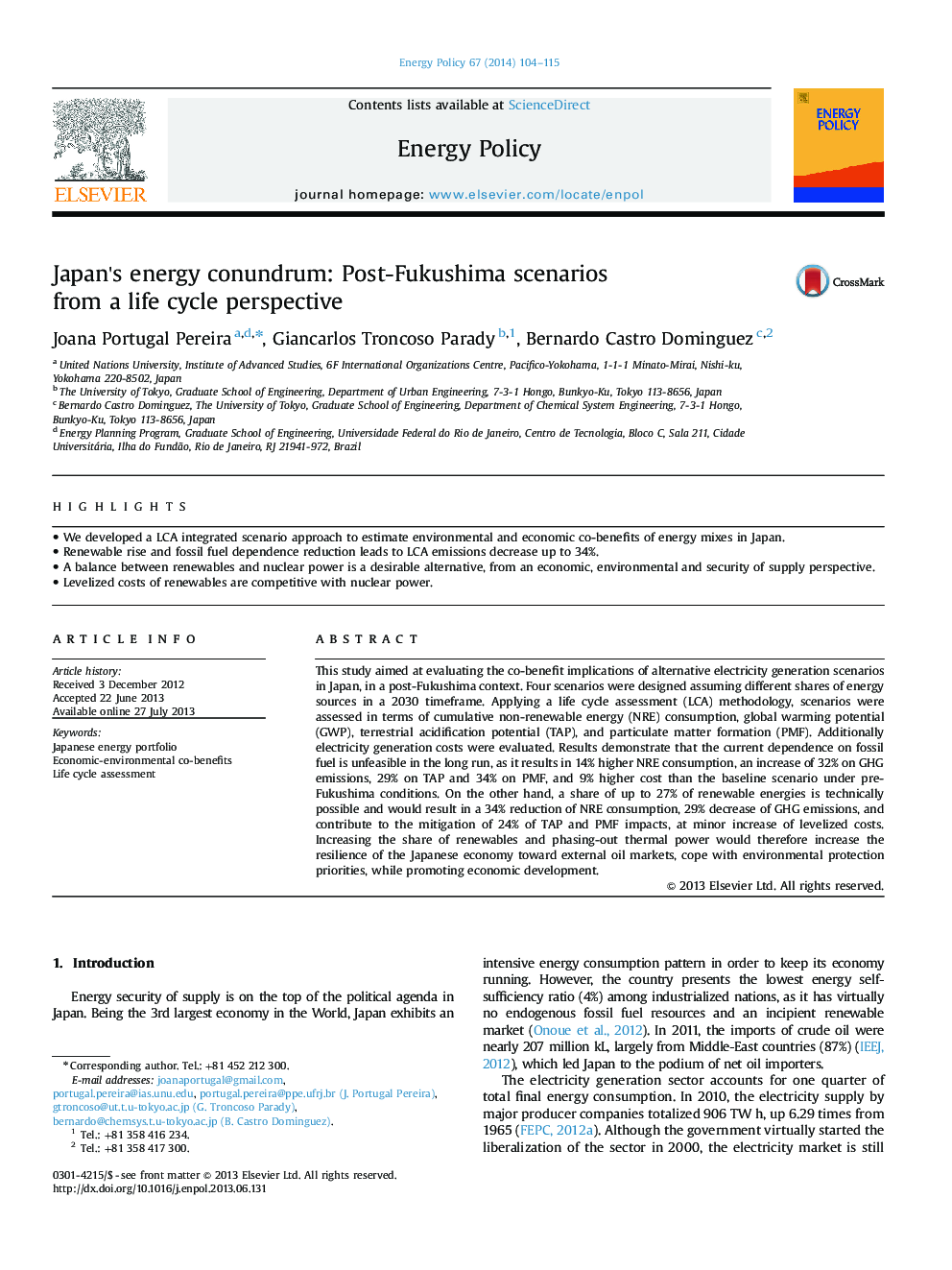| Article ID | Journal | Published Year | Pages | File Type |
|---|---|---|---|---|
| 7402189 | Energy Policy | 2014 | 12 Pages |
Abstract
This study aimed at evaluating the co-benefit implications of alternative electricity generation scenarios in Japan, in a post-Fukushima context. Four scenarios were designed assuming different shares of energy sources in a 2030 timeframe. Applying a life cycle assessment (LCA) methodology, scenarios were assessed in terms of cumulative non-renewable energy (NRE) consumption, global warming potential (GWP), terrestrial acidification potential (TAP), and particulate matter formation (PMF). Additionally electricity generation costs were evaluated. Results demonstrate that the current dependence on fossil fuel is unfeasible in the long run, as it results in 14% higher NRE consumption, an increase of 32% on GHG emissions, 29% on TAP and 34% on PMF, and 9% higher cost than the baseline scenario under pre-Fukushima conditions. On the other hand, a share of up to 27% of renewable energies is technically possible and would result in a 34% reduction of NRE consumption, 29% decrease of GHG emissions, and contribute to the mitigation of 24% of TAP and PMF impacts, at minor increase of levelized costs. Increasing the share of renewables and phasing-out thermal power would therefore increase the resilience of the Japanese economy toward external oil markets, cope with environmental protection priorities, while promoting economic development.
Keywords
Related Topics
Physical Sciences and Engineering
Energy
Energy Engineering and Power Technology
Authors
Joana Portugal Pereira, Giancarlos Troncoso Parady, Bernardo Castro Dominguez,
